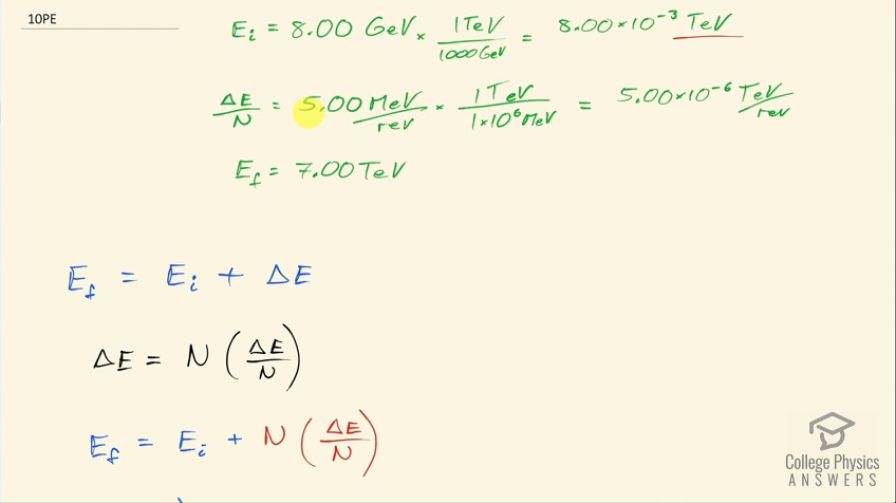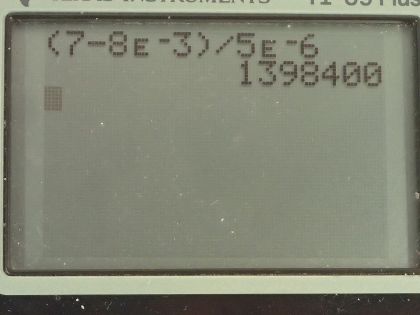Question
Because of energy loss due to synchrotron radiation in the LHC at CERN, only 5.00 MeV is added to the energy of each proton during each revolution around the main ring. How many revolutions are needed to produce 7.00-TeV (7000 GeV) protons, if they are injected with an initial energy of 8.00 GeV?
Final Answer
Solution video
OpenStax College Physics for AP® Courses, Chapter 33, Problem 10 (Problems & Exercises)

vote with a rating of
votes with an average rating of
.
Calculator Screenshots
Video Transcript
This is College Physics Answers with Shaun Dychko. In the Large Hadron Collider at CERN, protons go around the main ring and gain 5.00 megaelectron volts for every revolution; they enter the main ring with an energy of 8.00 gigaelectron volts and their final energy is 7.00 teraelectron volts and the question is how many times does the proton need to go around the main ring in order to get from 8.00 gigaelectron volts up to 7.00 teraelectron volts? We should have the same units everywhere so let's standardize the units into teraelectron volts so we multiply 8.00 gigaelectron volts by 1.00 teraelectron volt for every 1000 gigaelectron volts and that is 8.00 times 10 to the minus 3 teraelectron volts. The energy per revolution we can multiply that by 1 teraelectron volt for every 10 to the 6 megaelectron volts and that's 5.00 times 10 to the minus 6 teraelectron volts per revolution and the final energy is going to be the initial energy plus the gain in energy and the total gain in energy is going to be the number of revolutions multiplied by the energy gained per revolution so we can substitute this in place of ΔE and then we will subtract the initial energy from both sides and so we have the number of revolutions times the energy gained per revolution equals the total final energy minus the initial energy and then we divide both sides by this fraction and we have the number of revolutions then. So that's 7.00 teraelectron volts minus 8.00 times 10 to the minus 3 teraelectron volts divided by 5.00 times 10 to the minus 6 teraelectron volts per revolution and this makes 1.40 times 10 to the 6 revolutions.
